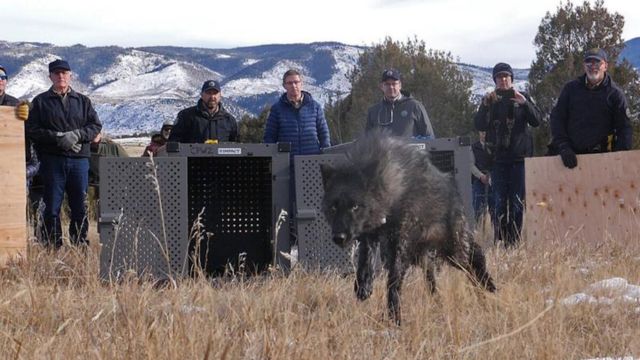Environmental organizations have filed a lawsuit against the U.S. Fish & Wildlife Service for rejecting a petition to reclassify gray wolves in the northern Rocky Mountains as either endangered or threatened.
Gray wolves are currently classified as endangered in 44 states under the Endangered Species Act. However, in Idaho, Montana, Wyoming, and parts of Oregon, Washington, and Utah, states have jurisdiction over their conservation efforts.
The Center for Biological Diversity, the Humane Society of the United States, Humane Society Legislative Fund, and Sierra Club have filed a lawsuit on Monday against the USFWS and Interior Director Deb Haaland. The lawsuit was filed in the U.S. District Court in Montana.
In February, the USFWS denied the groups’ listing petition but made the decision to develop a national recovery plan for the species. As a result, the lawsuit has been filed by the groups.
The US Fish and Wildlife Service (USFWS) stated that, following a thorough evaluation based on rigorous scientific analysis, they have concluded that there is no need to list gray wolves under the Endangered Species Act (ESA) in the Northern Rocky Mountains and the Western United States. It is important to note that this determination does not alter the legal status of gray wolves.
According to the lawsuit, the decision made by the USFWS was deemed “unlawful and arbitrary.” The argument put forth was that the decision did not take into account the best available scientific evidence.
The lawsuit states that the plaintiffs are requesting the Court to declare the denial of the Petition by the Service as arbitrary, capricious, and unlawful under the ESA. They are seeking for the decision to be vacated and the matter to be remanded to the Service with a specific deadline for determining whether the best available science supports the protection of wolves in the Northern Rocky Mountains as an endangered or threatened species.
In December, gray wolves were reintroduced in Colorado as a result of a voter-approved initiative. The state has received a special designation from USFWS, allowing them to treat the population as experimental.



